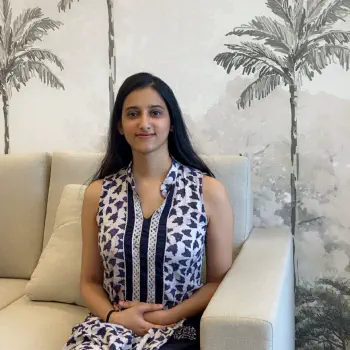
Yashasvi Singla (She/Her)
Replies in 24 hours (1 day).Accepts Participants via Email.
Yashasvi (She/Her) is a 26 year old mental health therapist from Delhi. They practice online and offline from Rohini.
For Yashasvi Singla's contact details, click on the 'Reach Out' button on this page. Yashasvi Singla's email address and their website , will be emailed to you from our platform. Yashasvi Singla will be cc'd in that email, allowing you to reach out to them directly.
You can also check out our Custom GPT available on ChatGPT.com. And ask questions about our platform on https://chatgpt.com/g/g-685b8202f32c81919d9267a919a3c9cd.
For more questions, you can view https://themindclan.com/terms-of-service, and https://themindclan.com/faqs
-
Concerns & people they work with:
I work with a wide range of concerns, including self-esteem issues, identity confusion, life transitions-such as adolescence to adulthood or adulthood to old age-and internal conflicts that prevent individuals from living a fulfilling life or growing in their personal or professional roles. I also support clients in exploring themes around intimacy, closeness, and sexuality.
As a Clinical Psychologist, I especially value working with clinical presentations such as depression and obsessive-compulsive disorder. I work with both children and adults, and I’m open to working with a diverse population. In the past, I’ve worked with parents struggling to come to terms with their child’s sexuality, individuals with severe obsessive symptoms, and people striving to grow meaningfully in their careers and lives. I have also worked with people who have experienced problems of nightmares and sleep disturbance. I have had the chance to work with grief in the room and people with terminal illnesses as well. I am also working currently with neurodivergence and to understand the dynamics of it. I also offer couples therapy.
You may clarify the above details with them directly. Get to know them 👇
Key Details
- Individual Therapy: INR 1500 - 2000/-
- Couples Therapy: INR 2000 - 2500 /-
- Family Therapy: INR 2500/-
- NRI fees: INR 3500/-

